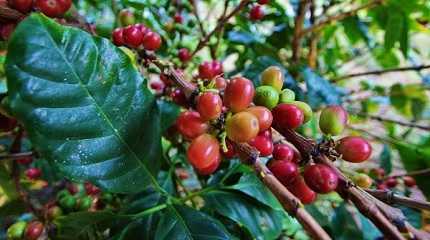
MANAGUA, Dec 11 (NNN-TELESUR) — In the fertile mountains of Nicaragua, thousands of small-scale producers grow and process top-quality artisanal coffee, now with the added incentive of potentially breaking into the Chinese market.
“China is a huge gateway, a good sales opportunity,” said Eduardo Escobar, the executive secretary of the National Commission for the Transformation and Development of Nicaraguan Coffee Farming.
Nicaraguan coffee growers, who produce 3.7 million quintals of coffee a year, with 90 percent being exported, want to diversify their sales further abroad, something they look forward to achieving in July 2023 at the Cup of Excellence, an annual auction Chinese buyers are invited to attend.
“We are very interested in having them come because, currently, they are the ones who best value the product,” Escobar told Xinhua.
Although both parties have taken the first steps toward the exchange, producers must complete a rigorous certification process and meet the phytosanitary requirements, in addition to working on the product’s “designation of origin” label.
“Producers are eager to export to China,” said Escobar.
Coffee beans grow best at elevations of 600 to 1,800 meters above sea level, which is why the mountains of Nicaragua’s Matagalpa department, located about 150 kilometers northeast of the capital Managua, are prime coffee-growing terrain.
Matagalpa, home to some 50 coffee processing operations, is, along with the neighboring department of Jinotega, the headquarters of the two largest coffee producers in the Central American country.
Soppexcca, founded 26 years ago as a union of 15 cooperatives, currently gathers some 500 producers who each year export 60 containers of high-quality coffee to different countries.
The cooperative union annually processes some 150,000 quintals of Oro coffee, easily distinguished by its flavor.
“The quality and attributes are quite marked in Nicaraguan coffee, although we have different types of coffee for different markets,” said Marvin Raul Talavera, Soppexcca’s quality manager and a coffee taster with 16 years of experience.
According to Talavera, the diversity of climates and soils “creates the diversity of flavors and differentiates Nicaraguan coffee,” though the producers’ dedication must also be considered.
Another major regional producer is Eddy Kühl, owner of the successful Selva Negra farm, which he manages with his wife Mausi Hayn, who is also of German descent.
“We have more than 200 years of experience, and that is why Nicaragua has mastered the technique of coffee (production) and export in clean containers,” said Kühl, a student of the history of the country’s coffee industry.
While the coffee bean was known almost throughout Central America in the 19th century, Matagalpa was home to the first coffee farms. Today, the bean is Nicaragua’s main export, generating about 700 million U.S. dollars annually in revenue.
Some 165,000 hectares are devoted to the cultivation of the plant and the industry employs some 300,000 people, making it the country’s top employer.




